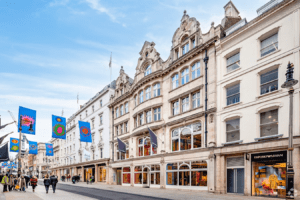Case Study: Securing Capital for London Underground’s Green Initiative
Background:
The London Underground, commonly known as the Tube, is one of the world’s oldest and most extensive urban railway networks, serving millions of passengers daily. With growing concerns about climate change and environmental sustainability, Transport for London (TfL) has embarked on an ambitious project to make the London Underground system more eco-friendly and energy-efficient. The initiative aims to reduce carbon emissions, improve energy consumption, and enhance the overall passenger experience while contributing to London’s commitment to become a carbon-neutral city by 2030.
Challenge:
The primary challenge faced by TfL was securing the necessary capital to fund the comprehensive green initiative for the London Underground. The initiative involved numerous aspects, including retrofitting existing stations and tunnels with energy-efficient technologies, transitioning to renewable energy sources, upgrading rolling stock to minimize emissions, and implementing innovative waste reduction strategies.
Strategy:
To address this challenge, TfL developed a multifaceted strategy to raise the required capital:
- Public-Private Partnerships (PPP): TfL sought partnerships with private investors and corporations interested in promoting sustainability and urban mobility. These partnerships would not only provide financial support but also bring in expertise and technological advancements in green infrastructure.
- Green Bonds Issuance: TfL explored the issuance of green bonds to raise funds specifically for environmentally friendly projects. Green bonds are fixed-income securities where the proceeds are dedicated to projects with positive environmental impacts, aligning with the eco-friendly initiative’s goals.
- Government Grants and Subsidies: TfL engaged with governmental bodies and agencies to secure grants and subsidies earmarked for sustainability initiatives. These funds could help offset a portion of the project costs and attract additional private investment.
- Corporate Social Responsibility (CSR) Collaborations: TfL approached companies with strong CSR commitments to collaborate on funding specific components of the green initiative. Such collaborations not only provided financial support but also enhanced the companies’ reputation for sustainability.
- Crowdfunding and Community Engagement: To involve the public and create a sense of ownership in the initiative, TfL considered launching crowdfunding campaigns and community engagement programs. These initiatives would encourage citizens to contribute small amounts, fostering a feeling of collective responsibility.
Results:
Through a combination of these strategies, TfL successfully secured the capital required to implement the London Underground’s new eco-friendly initiative. The results included:
- Reduced Carbon Emissions: Upgraded infrastructure and renewable energy sources significantly reduced the carbon footprint of the London Underground system.
- Improved Energy Efficiency: Energy-efficient lighting, ventilation, and cooling systems led to substantial energy savings and reduced operational costs.
- Enhanced Passenger Experience: Modernized stations and improved air quality positively impacted the passenger experience, attracting more riders and improving overall satisfaction.
- Positive Public Perception: The initiative garnered positive media coverage and public support, enhancing TfL’s reputation as an environmentally conscious and responsible organization.
- Private-Sector Engagement: Successful partnerships with private investors and corporations led to technological innovation and knowledge exchange in sustainable infrastructure development.
By strategically approaching various funding sources and aligning them with the goals of the eco-friendly initiative, TfL was able to transform the London Underground into a greener, more efficient, and sustainable urban transportation system, setting an example for other cities around the world.





